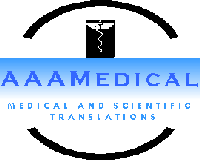Wat denken jullie over een Nederlandstalige proofreading circle Thread poster: AAAmedical
|
|---|
AAAmedical 
Belgium
Local time: 19:31
English to Dutch
+ ...
Hallo,
Ik loop hier al een tijdje over te denken. Heeft iemand interesse in het vormen van een Nederlandstalige proofreading circle?
Heeft iemand hier reeds ervaring mee?
Groetjes
Ann
| | | | | Uitstekend idee | Oct 9, 2002 |
maar wel \'gevaarlijk\'.
Proofen en editing is moeilijker dan doorgaans wordt aangenomen.
Vooreerst (en misschien wel vooral) omdat beide vaak verward worden.
Of zoals een ander het ooit uitstekend omschreef:
Proofreaders compare the proofs of a typeset work against the text the editor has marked up (see below), check for typesetting errors (including things like bad kerning, wrong fonts, and errors introduced while corre... See more maar wel \'gevaarlijk\'.
Proofen en editing is moeilijker dan doorgaans wordt aangenomen.
Vooreerst (en misschien wel vooral) omdat beide vaak verward worden.
Of zoals een ander het ooit uitstekend omschreef:
Proofreaders compare the proofs of a typeset work against the text the editor has marked up (see below), check for typesetting errors (including things like bad kerning, wrong fonts, and errors introduced while correcting previous errors), and may also colour-code author\'s alterations
which the author will be billed for, as opposed to staff mistakes which the
publisher pays for.
Proofreaders are *not* supposed to do copy editing --
in fact, they are usually trained not to read the copy for sense but to concentrate on word-for-word and letter-for-letter matches between the marked-up copy and the proof. One old trick to prevent oneself from being distracted by the content is to start at the end and check each line from
right to left (European languages - I presume the reverse for Hebrew or Arabic).
The skills required of proofreaders are primarily a sound knowledge of the
appropriate symbols for markup, an ability to focus narrowly on the visual aspect (font recognition, spotting typos and wrong-sized bullets, etc.), and the patience to work very meticulously.
Given those skills, it is not necessary even to understand the language of the text: in my youth I even proofed a little Sanskrit and quite a lot of mathematics I couldn\'t
understand!
Editors, of course, have a very different sort of job. They need a superlative set of language skills in their own language but don\'t necessarily know any other languages well. They also need to know a lot more about the subject of the text, who will be reading it, what type of vocabulary is appropriate for the style, what the normal conventions are for that type of publication and that particular publisher, etc., etc.
There are usually several editors involved in any given book, each doing a specific type of work -- the acquisitions editor chooses the book for the publisher, the managing editor co-ordinates its publication with the business side (budgeting, sales, etc.), the (project) editor may be involved in structural and substantive editing to improve the work and its chances on the market, the copy editor will deal primarily with issues of style and correct usage, another copy editor or \"line editor\" may go
through the manuscript again to catch any grammatical and spelling mistakes and (one hopes!) spot any lapses of logic or inaccurate facts that slipped by ... and only after all this does it go for layout and typesetting.
It is assumed (usually rightly) that most problems will have been corrected
before the proofreader sees the proof.
The pay rates for editors and proofreaders vary considerably, which makes sense when you consider the different levels of responsibility and skill, especially when there is also a requirement for real training and expertise in a particular field.
Proofreaders are generally at the low end of the scale and are often really editors-in-training learning the business.
At the high end would be an editor in a field like neuroscience or nuclear propulsion, who has probably had a university education in that particular
subject area and has proven his/her writing and editing skills for many years.
As a very rough idea, proofreaders in Quebec are usually in the $15-$20/hour range, while the chief editor of a scientific journal might well command $100-$150/hour. Most experienced but not highly specialized
Canadian editors would be somewhere in the $35-$85/hour range, depending on
their clientele and negotiating skills.
If you want to know more about what
editors do, try http://www.editors.ca and have a look at \"Professional Editorial Standards\".
In the world of translation --as in most of the non-editing world-- there seems to be a very different notion of what is involved. Those of you who read Alex Eames\' Tranfree newsletter may have seen an article a while back which suggested that translators could get away with a lot less editing of their work and actually recommended \"proofreading\" which consists of a simple spot-check before sending the text off to the client.
Needless to say, I disagreed with the author\'s method and misuse of the terms and took the time to write and ask for a clarification.
I received the reply that the article was following the norms for translators.
Heaven help the profession if that is true! If we routinely sent off unedited, unproofread files to our clients, we would certainly have little basis for our claim to be professionals.
Admittedly, our clients often demand we meet unrealistic deadlines, which makes a careful edit impossible, but surely a quick run with the spellchecker is *not* enough.
Some clients don\'t understand the need for time to go over our work at least once or twice before the results are error-free and would hesitate to pay extra for editing and proofreading time.
I can understand that but not a translator who thinks a \"more or less\" translation is good enough. Personally, I think one\'s basic translation rate must surely include that
work or one is necessarily providing a translation which will contain errors.
I also think the rationale for an agency taking 30% or more rather than a basic 10%-15% commission is that the agency\'s personnel review and share responsibility for one\'s work. An agency which does not read over the material before submitting it to the client and which moreover makes the
translator financially liable for the dissatisfaction of a client with whom
the translator has no contact should be paying top rates to reflect the
translator\'s responsibility for proper editing.
The one agency with which I work does recheck my work thoroughly --
essential since their main client always expects a full week\'s work done
between Friday afternoon and Monday morning, and I\'m too cross-eyed by the end not to miss things -- and gets a bit of a discount to reflect that I\'m not spending time on a full edit. On the other hand, where the original text is unedited and I am expected to produce a translation that makes
sense or where I am expected to do something which is not translation (e.g., checking or revising facts or references), I do estimate the additional editing time required and the hourly rate which will apply.
In any case, I\'m stuffy enough to say flat-out that *every* written document other than a note to oneself probably deserves a re-reading and a correction or two -- in short, at least a light edit.
I will flex enough to accept that \"proofreading\" in most of the world simply means re-reading a text to eliminate spelling and grammatical errors but, old fogey that I am, I insist that means human intervention rather than relying on software to know what an author is trying to say.
Zolang het zich dus beperkt tot controle op spelfouten allerhande en hier en daar een suggestie (enz.) wil ik best meehelpen.
Voor het betere (of \'echte\') redigeerwerk daarentegen wil ik wel gehonoreerd worden, en dan niet met \'gratis\' vertalingen..
[addsig] ▲ Collapse
| | | | | Goed idee, als iedereen zijn verstand gebruikt | Oct 9, 2002 |
Quote:Zolang het zich dus beperkt tot controle op spelfouten allerhande en hier en daar een suggestie (enz.) wil ik best meehelpen.
Voor het betere (of \'echte\') redigeerwerk daarentegen wil ik wel gehonoreerd worden, en dan niet met \'gratis\' vertalingen...
Ik ga volledig akkoord met Evert. Ik zou het veeleer zien als een soort onderlinge ruil, waarbij je voor elkaar ongeveer gelijke volumes revis... See more Quote:Zolang het zich dus beperkt tot controle op spelfouten allerhande en hier en daar een suggestie (enz.) wil ik best meehelpen.
Voor het betere (of \'echte\') redigeerwerk daarentegen wil ik wel gehonoreerd worden, en dan niet met \'gratis\' vertalingen...
Ik ga volledig akkoord met Evert. Ik zou het veeleer zien als een soort onderlinge ruil, waarbij je voor elkaar ongeveer gelijke volumes reviseert, zoniet vrees ik dat er snel misbruiken zullen komen. Maar ik blijf het een goed idee vinden.
Joeri ▲ Collapse
| | | | Nicolette Ri (X)
Local time: 19:31
French to Dutch
+ ...
Ik geloof dat het idee van een \"proofreading circle\" niet bedoeld is voor uitgebreide editing en/of controle van de inhoud van het vertaalde. Als de (uiteindelijke) klant dat wil, dan moet hij daarvoor ook betalen want dat is uiteraard een extra service, en dan zoek je daarvoor een specialist die dan ook betaald krijgt. En verder het is ook niet de bedoeling om de verantwoordelijkheid op de schouders van de proofreader te schuiven, want iedereen blijft natuurlijk verantwoordelijk voor zijn eig... See more Ik geloof dat het idee van een \"proofreading circle\" niet bedoeld is voor uitgebreide editing en/of controle van de inhoud van het vertaalde. Als de (uiteindelijke) klant dat wil, dan moet hij daarvoor ook betalen want dat is uiteraard een extra service, en dan zoek je daarvoor een specialist die dan ook betaald krijgt. En verder het is ook niet de bedoeling om de verantwoordelijkheid op de schouders van de proofreader te schuiven, want iedereen blijft natuurlijk verantwoordelijk voor zijn eigen werk. Het gaat hier eerder om kwaliteitsverbetering van het geschrevene, samenwerking of bijvoorbeeld brainstorming (ik denk aan reclame), want sommige dingen kunnen met vrij eenvoudige ingrepen anders of beter gezegd worden, en wat dat betreft vind ik het een schitterend idee en doe ik graag mee. ▲ Collapse
| | |
|
|
|
blomguib (X) 
Local time: 14:31
English to Flemish
+ ...
| waarom niet? | Oct 11, 2002 |
dikwijls leg ik een afgeronde vertaling (als de tijd dit toelaat) een dag of twee weg om \"los te komen\" van de tekst. Als ik die dan daarna lees zijn er regelmatig dingen waarvan ik mij achteraf de bedenking maak dat ik dat toch wel veel beter had kunnen zeggen. Als het de bedoeling van deze \"proofreading circle\" is om voor elkaar vertalingen door te lezen en te kijken naar \"obvious mistakes\" en stijlgerelateerde zaken (zoals zinnen die niet lopen of klinken), dan ben ik zeker geinteressee... See more dikwijls leg ik een afgeronde vertaling (als de tijd dit toelaat) een dag of twee weg om \"los te komen\" van de tekst. Als ik die dan daarna lees zijn er regelmatig dingen waarvan ik mij achteraf de bedenking maak dat ik dat toch wel veel beter had kunnen zeggen. Als het de bedoeling van deze \"proofreading circle\" is om voor elkaar vertalingen door te lezen en te kijken naar \"obvious mistakes\" en stijlgerelateerde zaken (zoals zinnen die niet lopen of klinken), dan ben ik zeker geinteresseerd! Dit zou, volgens mij, een forse tijdwinst en verrijking van de vertaling betekenen. ▲ Collapse
| | | | There is no moderator assigned specifically to this forum. To report site rules violations or get help, please contact site staff » Wat denken jullie over een Nederlandstalige proofreading circle | Trados Business Manager Lite | Create customer quotes and invoices from within Trados Studio
Trados Business Manager Lite helps to simplify and speed up some of the daily tasks, such as invoicing and reporting, associated with running your freelance translation business.
More info » |
| | Anycount & Translation Office 3000 | Translation Office 3000
Translation Office 3000 is an advanced accounting tool for freelance translators and small agencies. TO3000 easily and seamlessly integrates with the business life of professional freelance translators.
More info » |
|
| | | | X Sign in to your ProZ.com account... | | | | | |







